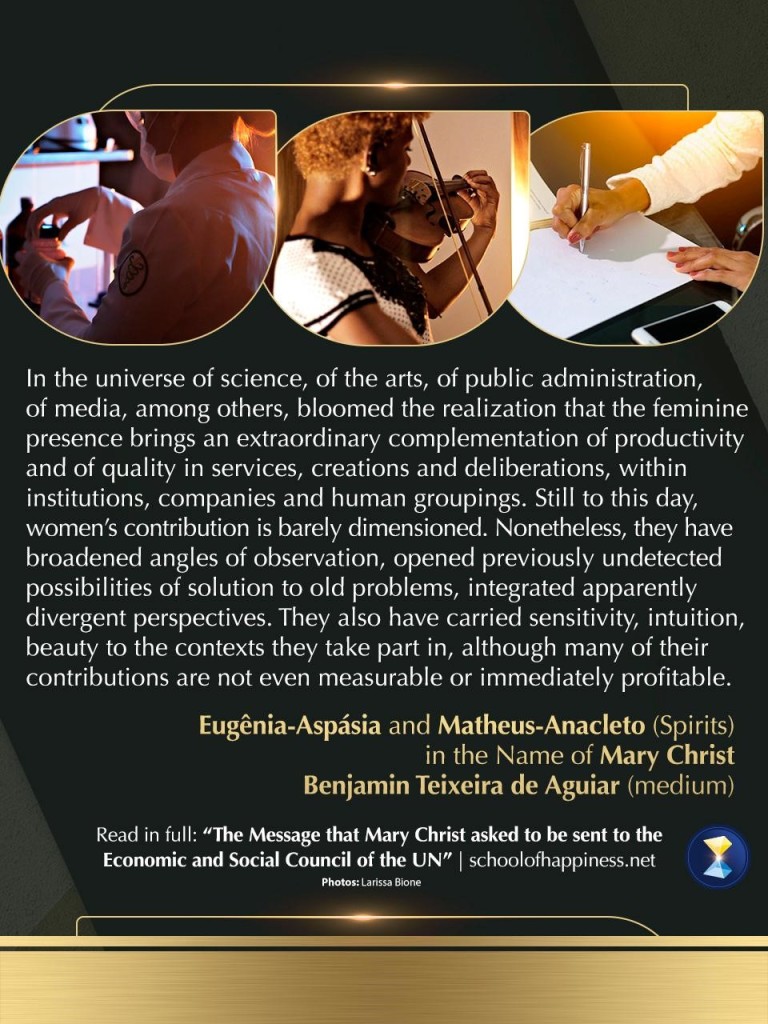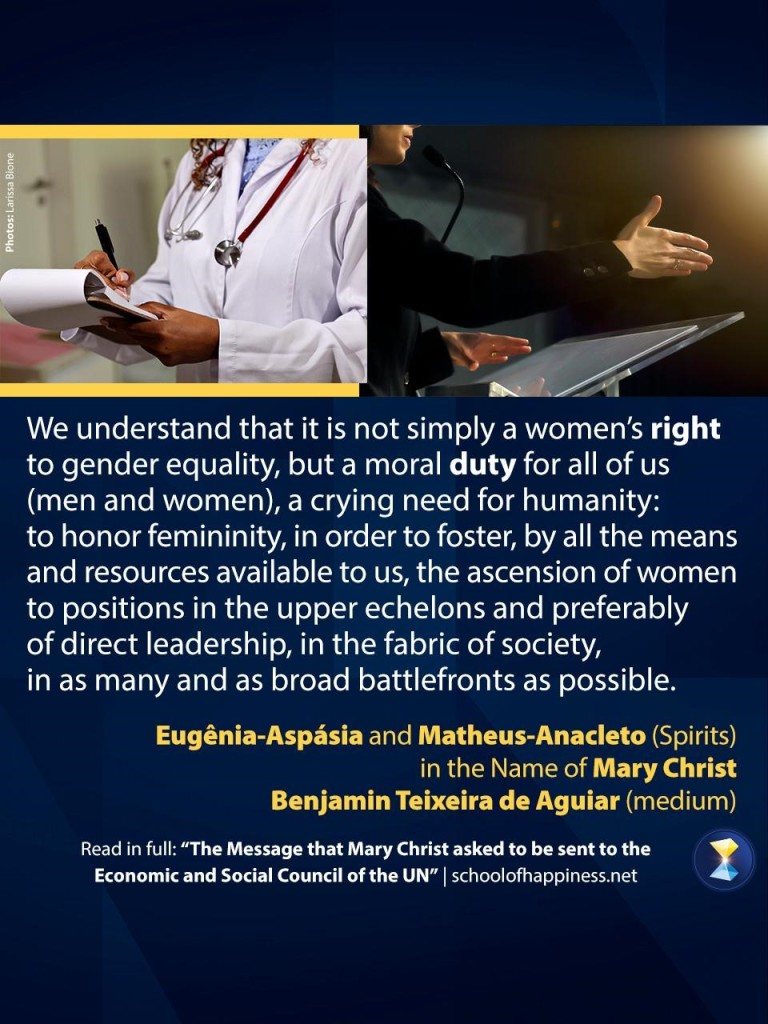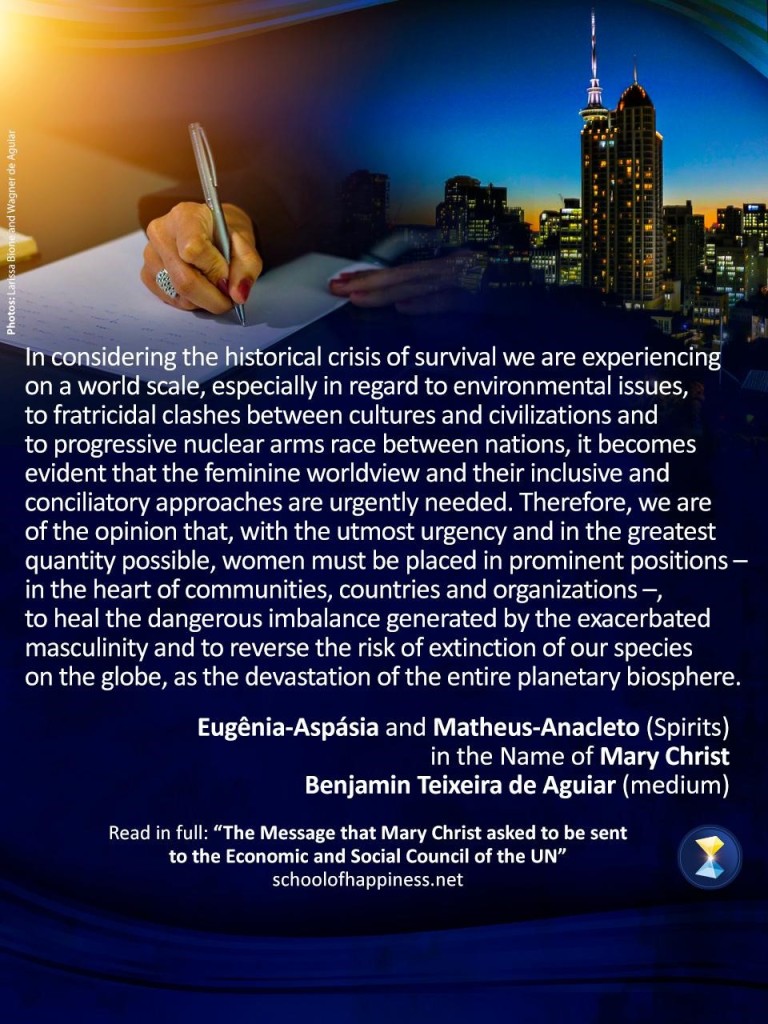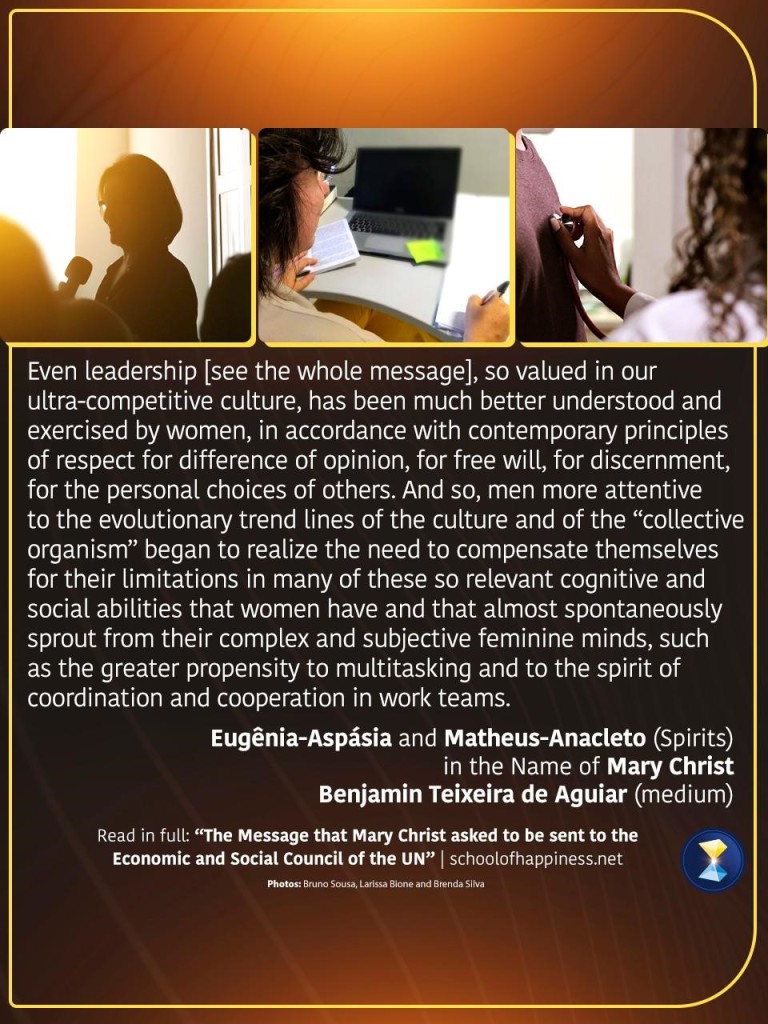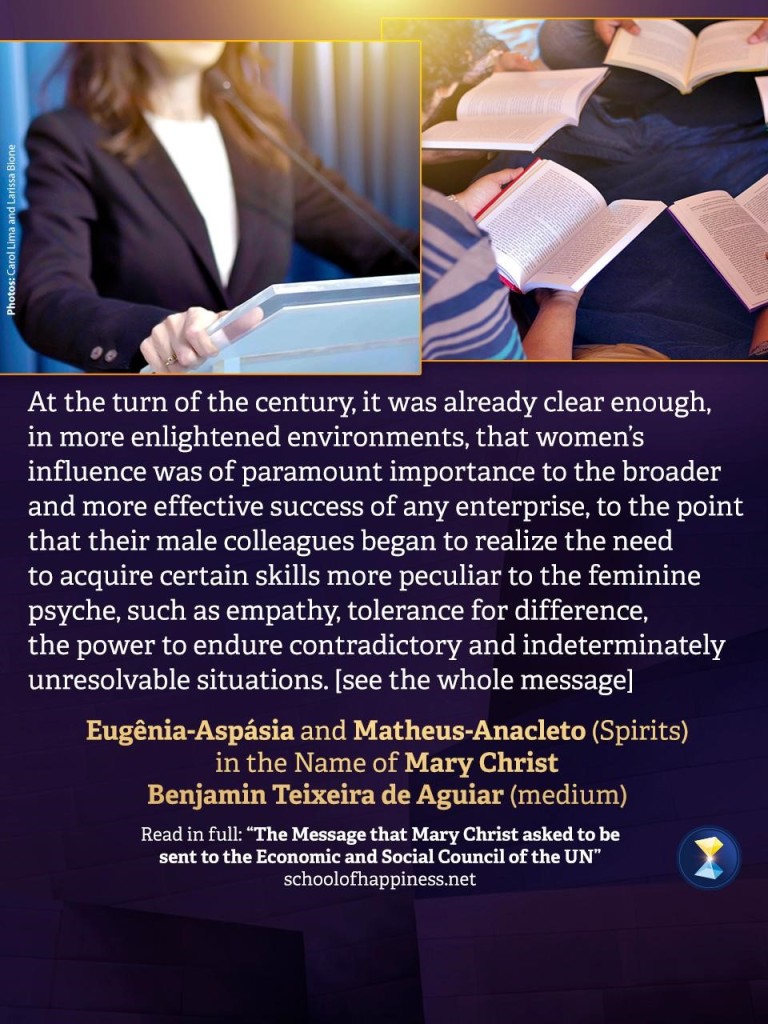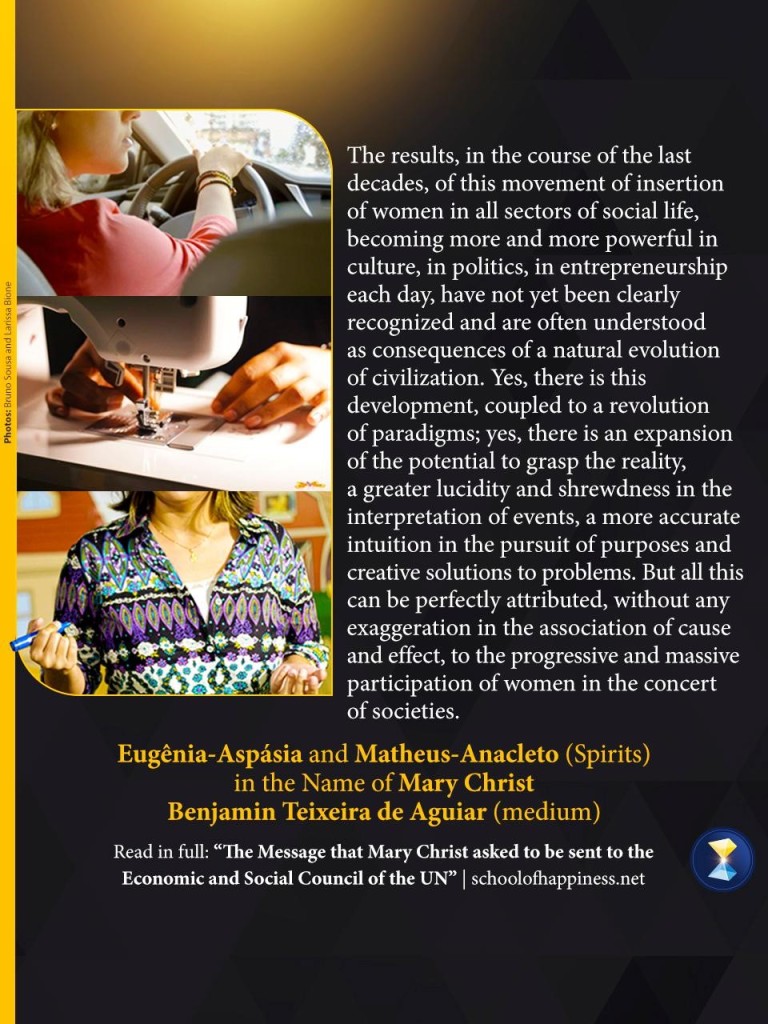Much more than a women’s right to gender equality
For successive centuries, it was believed, as an unquestionable axiom, that women could not take positions considered to be of greater responsibility, because they would be inept to play roles that were regarded as exclusively meant for the modus operandi of men, for the masculine way of perceiving and thinking the world.
In the early decades of the modern feminist movement, great benefactors of humanity have bravely postulated that women were fully capable of performing any task executed by their counterparts of the opposite gender. The two great world wars of the twentieth century made this potential very clear, with the immersion, in mass, of millions of women in industrial and battlefield support activities.
For most of the past century, countless legions of sisters of our species then made the effort to psychologically cross-dress, acting, speaking and even interpreting existence from a male perspective, so that they could be respected as competent professionals and academics.
As the end of the last century approached, however, it began to sprout, in professional women of various fields, the willingness to imprint into the workplace their feminine prism of seeing, feeling and acting, adding significant value to the efficiency of business, research and achievements, in all areas of human action and knowledge. It became obvious, hence, that women could not only do everything that men could, but they could do it differently and, very often, better.
In the universe of science, of the arts, of public administration, of media, among others, bloomed the realization that the feminine presence brings, in every sense, an extraordinary complementation of productivity and of quality in services, creations and deliberations, within institutions, companies, human groupings. Still to this day, women’s contribution is barely dimensioned. Nonetheless, they have broadened angles of observation, opened previously undetected possibilities of solution to old problems, integrated apparently divergent perspectives. They also have carried sensitivity, intuition, beauty to the contexts they take part in, although many of their contributions are not even measurable or immediately profitable.
The results, however, in the course of the last decades, of this movement of insertion of women in all sectors of social life, becoming more and more powerful in culture, in politics, in entrepreneurship each day, have not yet been clearly recognized and are often understood as consequences of a natural evolution of civilization. Yes, there is this development, coupled to a revolution of paradigms; yes, there is an expansion of the potential to grasp the reality, a greater lucidity and shrewdness in the interpretation of events, a more accurate intuition in the pursuit of purposes and creative solutions to problems. But all this can be perfectly attributed, without any exaggeration in the association of cause and effect, to the progressive and massive participation of women in the concert of societies.
Finally, at the turn of the century, it was already clear enough, in more enlightened environments, that women’s influence was of paramount importance to the broader and more effective success of any enterprise, to the point that their male colleagues began to realize the need to acquire certain skills more peculiar to the feminine psyche, such as empathy, tolerance for difference, the power to endure contradictory and indeterminately unresolvable situations.
Even leadership, so valued in our ultra-competitive culture, has been much better understood and exercised by women, in accordance with contemporary principles of respect for difference of opinion, for free will, for discernment, for the personal choices of others. And so, men more attentive to the evolutionary trend lines of the culture and of the “collective organism” began to realize the need to compensate themselves for their limitations in many of these so relevant cognitive and social abilities that women have and that almost spontaneously sprout from their complex and subjective feminine minds, such as the greater propensity to multitasking and to the spirit of coordination and cooperation in work teams.
Today, women are seen as more appropriate options for many positions of action and command that before were entirely dominated by the masculine gender, just as more feminine men or even gay men, in various professional settings, end up being privileged, exactly for having an experience of better integration of the two complementary psychic poles (feminine and masculine) of human consciousness.
On the other hand, in considering the historical crisis of survival we are experiencing on a world scale, especially in regards to environmental issues, to fratricidal clashes between cultures and civilizations and to progressive nuclear arms race between nations, it becomes evident that the feminine worldview and their inclusive and conciliatory approaches are urgently needed.
Therefore, we are of the opinion that, with the utmost urgency and in the greatest quantity possible, women must be placed in prominent positions – in the heart of communities, countries and organizations –, to heal the dangerous imbalance generated by the exacerbated masculinity and to reverse the risk of extinction of our species on the globe and the devastation of the entire planetary biosphere.
We understand, therefore, that it is not simply a women’s right to gender equality, but a moral duty for all of us (men and women), a crying need for humanity: to honor femininity, in order to foster, by all the means and resources available to us, the ascension of women to positions in the upper echelons and preferably of direct leadership, in the fabric of society, in as many and as broad battlefronts as possible.
Eugênia-Aspásia and Matheus-Anacleto (Spirits)
in the Name of Mary Christ
Benjamin Teixeira de Aguiar (medium)
October 11, 2019
See the Portuguese version: A Mensagem que Maria Cristo solicitou fosse enviada ao Conselho Econômico e Social da ONU – Documento de participação do ISQ na CSW64

